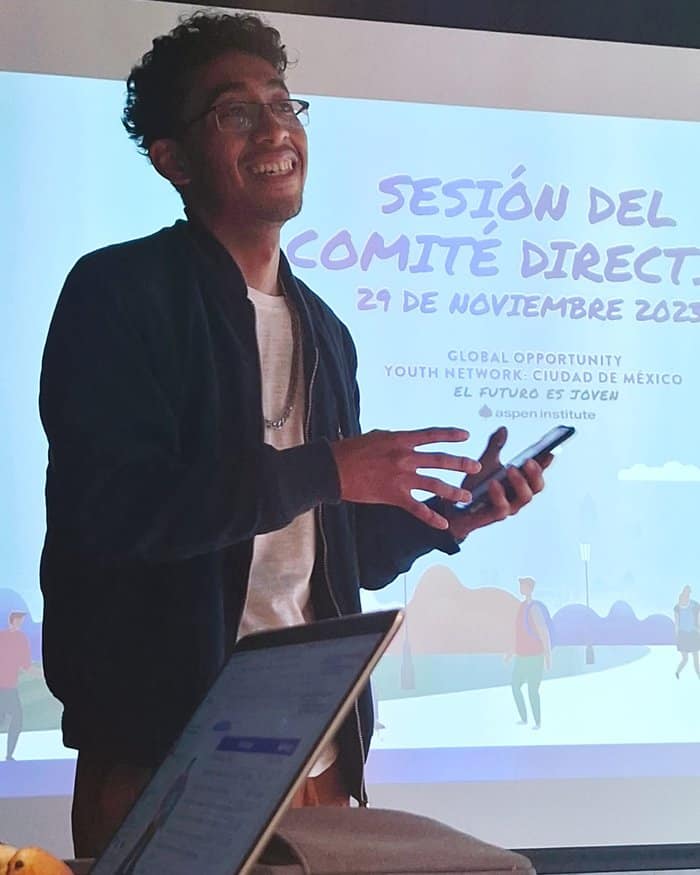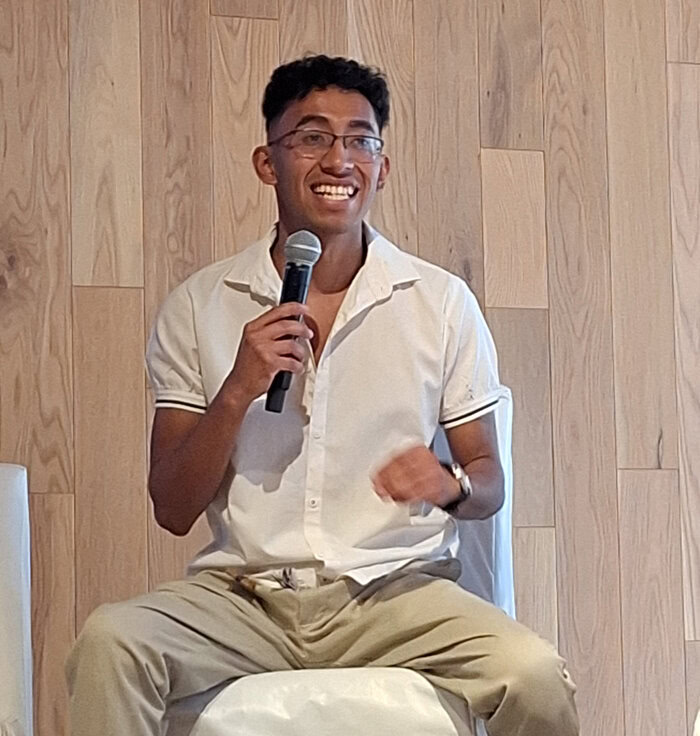Shlomi Eduardo Huerta
Single father, entrepreneur and member
from the Youth Advisory Group, GOYN CDMX
I am Eduardo Shomi, I am 25 years old. I have been an entrepreneur and businessman since I was 13 years old. I am also a single father of a beautiful five-year-old princess and I am in charge of taking care of my family, my mother and my siblings.
I'm going to tell you a little about my day-to-day life, as it is today, Wednesday. My day starts early, at five in the morning, to go to work, since the journey is a bit long. I travel an hour from my house to the place where I go and buy merchandise. For years, I have been offering products and services.
At that time, I leave my princess with my mother and my brothers, who help me keep an eye on her. Then I return home to take her to school at 8 in the morning. During that time, from 8 in the morning to 2 in the afternoon, I am in charge of contacting clients, of looking at the products that I am going to offer, making deliveries, both in person in Mexico City and in the metropolitan area, and also making shipments to different parts of the Republic through parcel service. When my princess leaves school, I am in charge of seeing her and giving her the attention that she needs.
My mother and my brothers really help me a lot, without that help I couldn't work. That's why I emphasize the importance of guaranteeing a universal care system to promote the inclusion of young people in the workplace in Mexico City.

Caregivers are not only mothers and fathers, or in this case, grandmothers and grandfathers. They are also sisters, brothers, even aunts, uncles, neighbors. They are all people who care for other people. In everyday life, we encounter structural barriers that stand in the way of these people also being cared for, because the right to care should be universal. The barriers also make the value of caregivers invisible; there is a general blindness to the contribution of caregivers in the daily life and economy of Mexico City. Many families go through these similar situations, where a head of the family has to go to work to provide for themselves. What would we do without them? What would we do without that social network? What can we do in the absence of safe places where one can leave one's children? Or where other people who need care, such as the elderly, people with an illness or disability, can receive dignified and professional care?
It is important to make care work visible, all these people are worth a lot. It is time to dignify their effort and contribution. Thanks to these people, the economy moves every day, the entire economy moves. Without these people, we could not go out to work, to train, we cannot go out to study, we cannot even go out to dance and have fun as young heads of families that we are.
The simple fact of working for ourselves makes us entrepreneurs, and there are many young entrepreneurs who are looking for an opportunity. Most of us are in the informal trade due to the structural barriers that limit our access to professionalization and formalization of our ventures and to enjoying a decent life. These barriers do not prevent us from doing things; we continue to earn our living on the streets day after day.
What advantages do we have as informal entrepreneurs? In my case, I can see my daughter grow up, have that time to spend with her, to give her quality time. And what are the disadvantages? I don't have social security, I don't have access to IMSS services, I don't have access to INFONAVIT or to all those social rights that all citizens of this country have.
That is why I am an active young opportunity member of the Youth Advisory Group of the Youth Opportunity Network in Mexico City, doing activism and supporting more young people so that they can follow their dreams, encouraging and guiding them so that they have access to new opportunities. That is why today I subscribe to the positioning of young opportunity members in the city: our voice, our work, our impact, to promote a comprehensive universal care system that addresses the needs of caregivers and those who require care.






